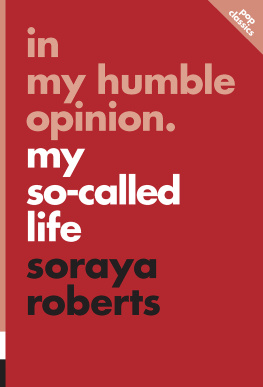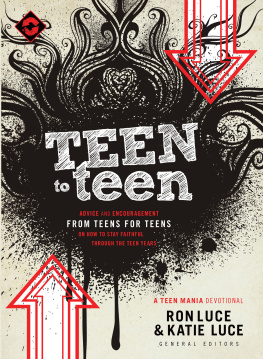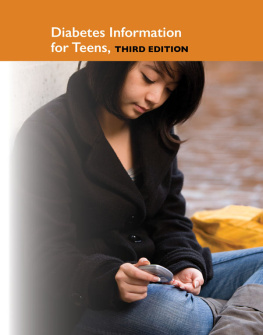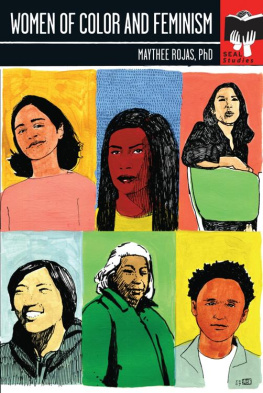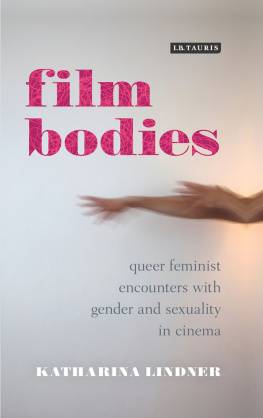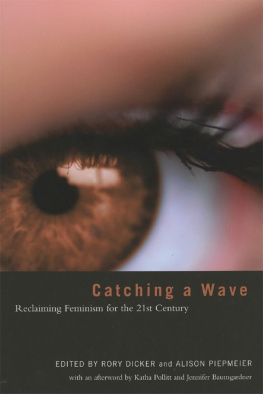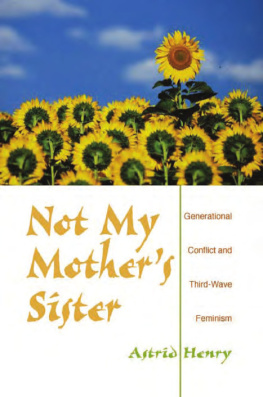Angela Chase was supposed to have a white lob thats what My So-Called Life writer Winnie Holzman wanted: albino white. I may have seen a girl on the street, I really dont know, she says. I guess it just occurred to me that Wow, thats out there. But the set hairdresser convinced her not to do it. She said it would ruin Claire Daness hair, a natural dirty blond, and suggested arterial red instead. That meant every time Danes showered, she looked like a murderess. And in a sense she was. Angelas red dye killed her past. A milk-colored mop might have been ideal as a symbol of her innocence and, as a blank slate, a perfect metaphor for a girl searching for her identity but it would have turned her into a specter floating seamlessly through her so-called life, the same way she always had. But red? Red is the color of revolution.
In her very first voice-over, Angela explains that, at 15, she is done with her old life. Things were getting to me, she says, peering out from two peanut-colored curtains of hair. Just how people are, how they always expect you to be a certain way. A subsequent scene in the pilot has her staring wide-eyed at her own reflection as a newly dyed blood-colored hank drips over her shoulder. School is a battlefield, for your heart, she says. So when Rayanne Graff told me my hair was holding me back, I had to listen. Cause she wasnt just talking about my hair. She was talking about my life. By changing her hair, by taking control of it, she is taking control of that life, the life her parents and her teachers and the world have been dictating for her. The red signals her search for her own persona a bright new one beyond her inheritance even though shes not entirely sure what it is yet. As she tries to find out, Crimson Glow illuminates her way.
Angela Chase appeared on ABC for the first time on August 25, 1994. She was nothing like her contemporaries, most notably hair-flipping cheerleader Kelly Kapowski and designer uber-bitch Brenda Walsh. Both Saved by the Bell (19891993) and Beverly Hills,90210 (19902000) were glossy, brightly colored celebrations of Hollywoodized teen life. These adolescents always looked amazing and were amazingly popular and lived in amazing houses with amazing parents and went to amazing parties and dated amazing guys and it was all so exciting! And when the music turned sober, these beautiful young things preached from their gilded screens about safe sex and just saying no. Even the ostensibly real teens in Canadas Degrassi franchise were contrived. With no sheen whatsoever (the show even excluded contemporary cultural references in an attempt to avoid becoming dated it didnt work), the original CBC trilogy used a documentary-like aesthetic to shoot a Toronto schools frayed halls, filled with average-looking kids with average homes. But the shows unwavering devotion to social issues, ranging from alcoholism to suicide to homophobia to anorexia, made it seem more like a series of thinly disguised public service announcements than entertainment.
If anything, Angela is the double-x answer to The Wonder Years Kevin Arnold, narrating her own search for personhood. The idea for MSCL actually predated the Fred Savage nostalgiungsroman. Marshall Herskovitz and Ed Zwick conceived MSCL back in the 70s while they were working on ABCs Family, a drama co-starring Kristy McNichol as a girl named Buddy. Marshall and Ed would think of ideas for this teenage girl character, Holzman says, like she lied to her parents or she experiments with cigarette smoking, or whatever it was and the showrunner would come back to them and say, Thats not our Buddy. So they decided, Lets do a teenage girl but make her super authentic like everything we couldnt do on Family. Though they were sidelined by their next show, thirtysomething, once it ended in 1991, they brought the idea to Holzman, one of its writers. Shes the one who conjured Angela Chase, the Pittsburgh adolescent with the very un-amazing life, and surrounded her with an equally relatable entourage best friends Rayanne Graff and Rickie Vasquez, crush Jordan Catalano, ex-BFF Sharon Cherski, neighbor Brian Krakow. Sure, social issues came up, but, as in real life, they weaved through the narrative, never didactically, but as mere fragments of a multi-faceted existence that often went unresolved. I wanted [Angela] to be given her due as a human being and as someone to be respected and allowed her own complexities, Holzman says. I felt that way about every character.
Human beings are hard to find on TV ambiguity was rare on primetime in the 90s and continues to be even now. But on MSCL, not having the answer was allowed, nay encouraged. In the pilot, Angela is asked why she is quitting yearbook and she says, with irritation, I dont know why. To allow for uncertainty is a hallmark of maturity. The inability to easily categorize ourselves is what makes us human, and, according to Holzman, it is one of the main components of MSCL. (Whyre you like this? Jordan asks Angela in Life of Brian. Like what? she responds. Like how you are?) It is also a main component of feminism, which, in Tavi Gevinsons words, is not a rulebook but a discussion, a conversation, a process. In fact, the founder of the teen feminist mag Rookie delivered a TEDx Talk in 2012 called Still Figuring It Out, in which she discussed Rookies encouragement of equivocation. The point is not to give girls the answers and not even give them permission to find the answers themselves, she said, but hopefully inspire them to understand that they can give themselves that permission, they can ask their own questions, find their own answer. Because one answer does not exist. Women are complicated, women are multi-faceted, Gevinson said. Not because women are crazy but because people are crazy and women happen to be people. She noted that teenagers are especially contradictory but she only really saw that reflected on television in Freaks and Geeks Lindsay Weir and MSCLs Angela Chase. The latter is particularly ambivalent, often contemplating one thing and doing another. What I was thinking, as, like, a New Years resolution, is to stop getting so caught up in my own thoughts, cause Im, like, way too introspective, I think, she says in Resolutions. But what if not thinking turns me into this really shallow person? I better rethink this becoming less introspective thing.
Angelas thoughts, her life, filled a hole in the market. Holzman knew the Hollywood stereotypes around her and created a show within them. I would try to almost have them and then bust people out of them, she says. She took the one-dimensional, gave it complexity, and in so doing produced one of the first feminist teen series. MSCL never once uses the F-word, but at the moment third-wave feminists in the real world were questioning the traditions surrounding gender, sexuality, class, and race,

